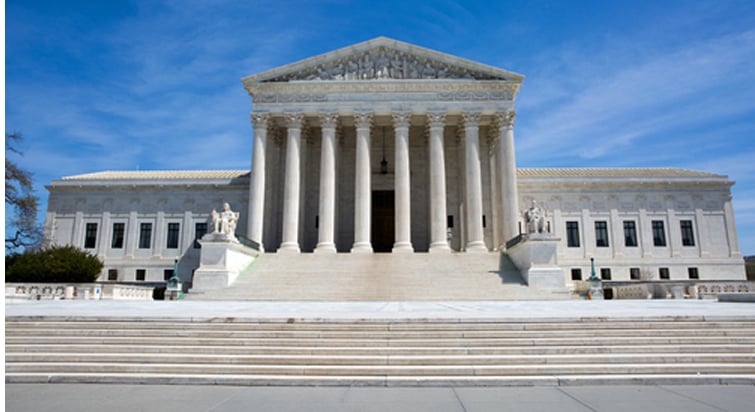
Some Democrats, still seething at the shabby treatment Chief Judge Merrick Garland (Chief Judge, mind you, of the same court upon which Judge Kavanaugh sits), are apparently inclined to vote against confirming Judge Kavanaugh on a sort of sauce-for-the-goose theory. CJ Garland is, if anything, even more experienced in all manner of government lawyering than is Judge Kavanaugh, and Leader McConnell's justification for denying President Obama his appointment barely passed the smile test (and wasn't much better when, years earlier, it had been proposed by Sens. Schumer and Biden). If the Democrats vote against Kavanaugh on this basis, it would be for a primarily institutional reason, not necessarily on the merits of the nominee. (Although it would be hard to argue that misgivings about Kavanaugh as a Supreme Court Justice would be irrelevant to such a vote.)
On the merits, though, opponents have been kicking up all kinds of dust. Kavanaugh, Trump, and Trump's press office insist that Roe v. Wade wasn't discussed before the nomination. Cynics might say that it didn't need to be in order for the president to know what he was getting. Maybe. Kavanaugh was one of 13 authors of a massive tome entitled The Law of Judicial Precedent in 2016, and by most accounts in that treatise, standard principles of stare decisis seem to support retention of the Roe precedent (at least as modified by the Webster case).
The argument I don't quite get is that Kavanaugh should be denied a seat on the Court because he would probably be an enemy of the Affordable Care Act. This argument seems to be based on a serious misreading of his dissent in the case that upheld the ACA in his court while a similar case was on its way to the Supreme Court, which also upheld the ACA the next year.
Two things are worthy of note: (1) His dissent was based upon the Anti-Injunction Act, which denies the federal courts jurisdiction to issue an order enjoining the assessment or collection of a tax. Challenges to a tax, as a result, can only be brought after the tax has been paid. And in the case of the ACA, nobody had been assessed a penalty by the IRS for violating the individual mandate. (2) In the same opinion, Kavanaugh pointed out that if the penalty (which the Obama administration tried to sell to Congress as "not a tax") were re-enacted as a tax, it would have fallen comfortably within Congress's taxing and spending powers. In fact, that is precisely how Chief Justice Roberts managed the next year to uphold the individual mandate. Without waiting for Congress to re-enact anything, Roberts characterized the "penalty" (the actual term in the ACA) as a "tax" and upheld the constitutionality of the individual mandate on that basis. Far from being a foe, it is possible that Kavanaugh was instead throwing out a lifeline to the Court to save one of the most contentious (and probably the most reviled) provision of the ACA. [Postscript: The Washington Post's Colby Itkowitz and others agree with me on this.)
We will hear much about Judge Kavanaugh's record in the months that follow his nomination. The emerging picture is of a judge who supports executive power and frequently opposes what he regards as administrative agencies' "overreach." Both of these strands of his judicial philosophy (and, more broadly, of his theory of government) might lead him to be skeptical of Obama-era healthcare regulations and to be more favorably inclined toward Executive Orders that seek to cut back on key aspects of that law's implementation. EOs have turned out to be one of President Trump's favorite actions (despite his criticism during the 2016 campaign of Pres. Obama's use of EOs). His ACA-limiting EOs include Nos. 13765 and 13813.
If this is what opposition to Judge Kavanaugh comes down to, he should be confirmed. He's conservative, yes. And yes, he probably wouldn't have voted with the Roe majority in 1973 (which is not the same as saying he would vote to overrule it in 2018 or later). But he's getting a bum rap on his ACA vote. He's also superbly qualified in terms of education and experience.
And elections have consequences. The Republicans have the White House and Congress. If they want to solidify a conservative majority on the Court, one judicial appointment at a time, they can do that.